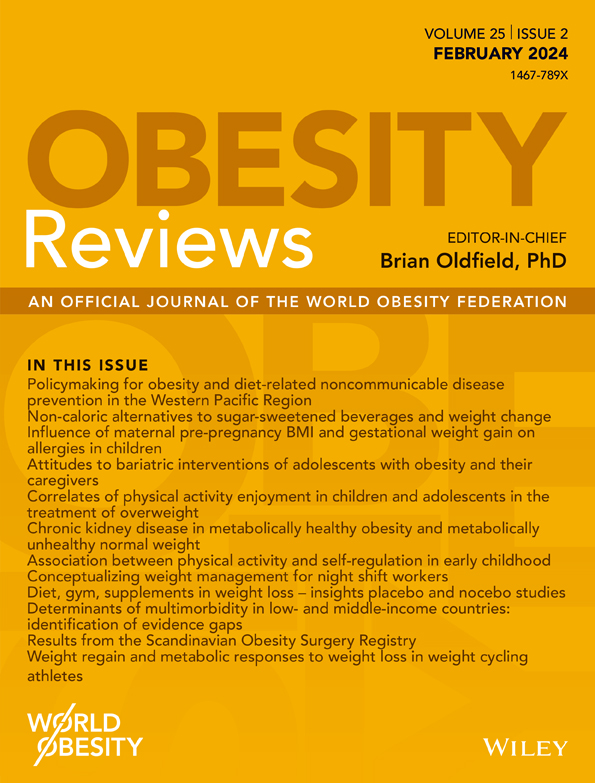The gut microbiome and eating behavior outcomes: A systematic review
Abstract
Background
Dysfunctional eating behaviors, and their modulators, are an important component in the prevalence of malnutrition. The gut microbiome, acting through the microbiota-gut-brain axis, is implicated as a modifiable factor in eating behavior. ObjectivesThis systematic review investigated the influence of the gut microbiome on human eating behavior and their modulators (appetite, satiety, energy/food intake, weight loss/gain).
Methods
Literature was retrieved from PubMed, Embase, and Web of Science until July 2022. In total, 37 studies were included, with interventions including pre/post/syn-biotics. The primary outcome was eating behaviors, and their modulators.
Results
The gut microbiome was associated with eating behaviors, and their modulators, in 28 studies, particularly affecting appetite/appetite hormones, energy/food intake, and weight gain. Intake of probiotics and synbiotics were inconsistently related to appetite and appetite hormone levels, (n = 6 and n = 2 respectively). Prebiotic supplementation showed a consistent trend in the reduction of appetite (n = 4), regulation of appetite hormone levels (n = 10), and increase in self-reported satiety (n = 4). Conversely, energy intake (n = 18) and weight gain/loss (n = 7) were inconsistently associated with probiotic interventions across studies, populations, and interventions. In terms of quality of evidence, most publications had a high risk or some concerns of risk of bias, with fewer than 25% falling into the low-risk category.
Conclusion
This review provides an overview of the links between the gut microbiome and human eating behavior across human phenotypes. While explicit associations between specific microbiome taxa and eating behavior are identified, further evidence is needed to substantiate causal relationships. Future research with standardized methods and prospective designs is needed.

 求助内容:
求助内容: 应助结果提醒方式:
应助结果提醒方式:


